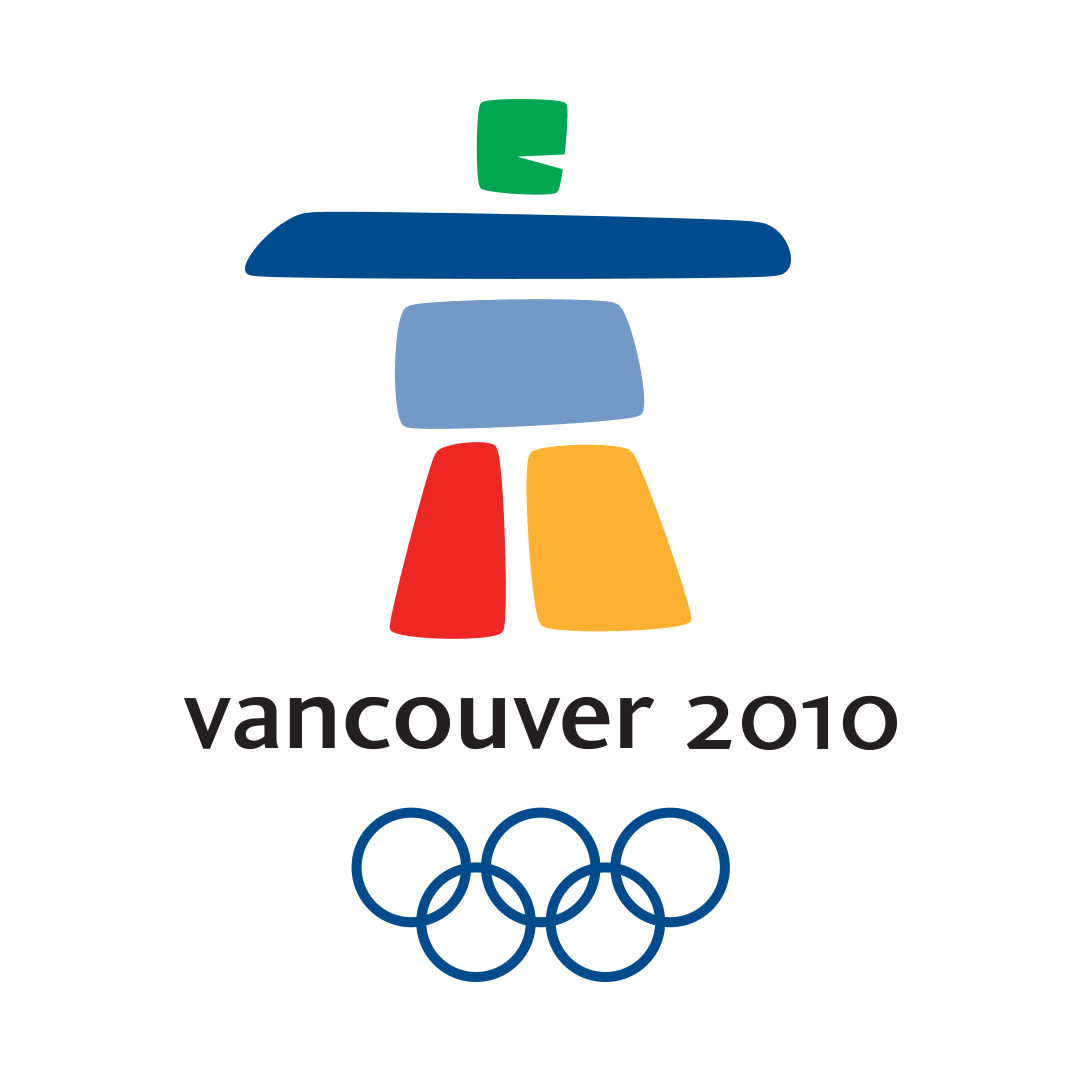
Olympic Winter Games Vancouver 2010
Vancouver 2010The Torch
Route Design and Details
After being lit in Olympia, the flame was relayed throughout Greece, where it was flown to Victoria (British Columbia, Canada) from Athens. The relay passed through every Canadian province and territory, and included Montreal and Calgary, host cities of the Games in 1976 and 1988.
On 30 October 2009, the flame landed at Victoria in Canada. Two Olympic medallists, Catriona le May Doan and Simon Whitfield, ran the first leg of the relay together.
On 8 November, the flame arrived by air in Alert in the territory of Nunavut, the northernmost permanently inhabited place in the world, 817 km from the North Pole.
On 9 February 2010, to honour the friendship between the two countries, the flame briefly entered the United States at the Peace Arc border crossing between the state of Washington (United States) and British Columbia (Canada). On 12 February, at the Opening Ceremony, although a technical problem prevented one of the four arms of the cauldron from rising up, the cauldron was still successfully lit by the torchbearers standing by the other arms: Nancy Greene Raine, Wayne Gretzky and Steve Nash. However, Catriona Le May Doan got her chance when she alone relit the cauldron during the Closing Ceremony via the fourth arm, which was working then.
Map of the Route
Facts and Figures
Start date: 22 October 2009, Olympia (Greece)
End date: 12 February 2010, BC Place Stadium and Jack Poole Plaza, Vancouver (Canada)
First torchbearer: Vassilis Dimitriadis, Olympic participant in alpine skiing (1998, 2002, 2006, 2010). He was also the first torchbearer in Greece for the relay of the 1998 Winter Games in Nagano.
Last torchbearers: Catriona Le May Doan, Olympic participant in speed skating (1992, 1994, 1998, 2002), gold and bronze medallist in Nagano 1998 and gold medallist in Salt Lake City 2002. Nancy Greene Raine, Olympic participant in alpine skiing (1960, 1964, 1968), gold and silver medallist in Grenoble 1968. Wayne Gretzky, Olympic participant in Ice Hockey (1998). Steve Nash, Olympic participant in basketball (2000).
Number of torchbearers: ~560 in Greece, 12,000 in Canada
Recruitment of torchbearers: The application programmes were managed by Coca-Cola and RBC, the two relay sponsors. In all, 8,500 slots were open to the public, and 30 per cent were intended for partners whose contributions were essential to the holding of the Games. There were hundreds of thousands of applications.
A special programme was set up to allow members of the First Nations, Inuit and Métis communities to take an active part in the relay by performing various functions, including that of torchbearer.
Distance: 2,180km in Greece, 45,000km in Canada (of which 4,000 were covered by torchbearers).
Countries visited: Greece, United States and Canada
Torch Details
Description: The shape of the torch was inspired by the fluid lines and curves produced by skis in the snow or skates on ice. There were also the contours of the Canadian landscape and the curves of the relay route. Its imposing size reflected the vastness of Canada’s territory. A cut in the shape of a maple leaf, the symbol of Canada, served as an air intake for the flame. The torch bore the emblem and the motto of this edition of the Games: “With Glowing Hearts, Des plus brillants exploits”.
Colour: Silver and white
Length: 94.5cm
Composition: Stainless steel, aluminium and plastic
Burner system: stainless steel, copper and brass
Fuel: Mix of propane, isobutane and hydrocarbons. Burning time of at least 12 minutes (more depending on the temperature and altitude).
Designer / Manufacturer: Bombardier, VANOC / Bombardier
Did You Know?
Two identical cauldrons were used, one in the BC Place Stadium for the Opening and Closing Ceremonies, and another at the Jack Poole Plaza in Coal Harbour. The first was extinguished at the end of the Opening Ceremony, while the second, lit shortly afterwards by Wayne Gretzky, remained alight throughout the Games. At the end of the Games, during the Closing Ceremony, the two cauldrons were extinguished simultaneously.
The Jack Poole Plaza cauldron can still be seen today. It is roughly 10 metres tall, with each pillar measuring 16.5 metres.
Eight safety lamps in the shape of miner’s lamps bearing the Organising Committee logo were produced by Bombardier. They had a burning time of around 15 hours and used a naphtha-based fuel.
2010
Discover the Games
The Brand
A visual identity is developed for each edition of the Olympic Games.Brand
The Medals
Beginning as an olive wreath, medal designs have evolved over the years.Medals
The Mascot
An original image, it must give concrete form to the Olympic spirit.Mascot
The Torch
An iconic part of any Olympic Games, each host offers their unique version.Torch
